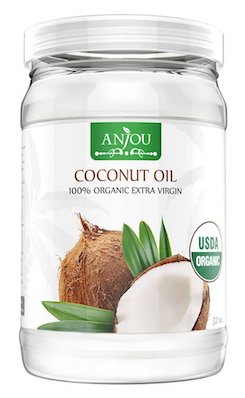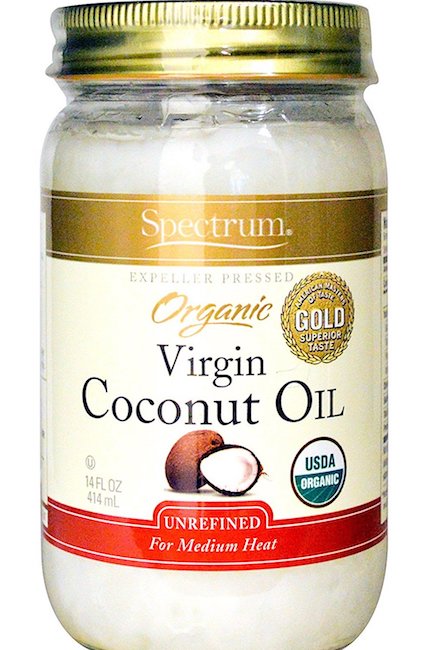Is coconut oil a silent killer? Is it a superfood? A cursory Internet search only reveals how entrenched the factions are on either side of this heated debate and serves as a smokescreen to cloud what we really know about the connection between nutrition and good health. So, is coconut oil a silent killer or a superfood? Maybe it is neither or both.
Challenging the Coconut Critics
As the critics of coconut oil point out, it certainly contains a lot of saturated fat. However, saturated fat is not necessarily bad for you.  The anti-saturated-fat faction, such as the American Health Association, bases its argument on the premise that low levels of HDL (good cholesterol) in the blood and high levels of LDL (considered bad cholesterol) is a good predictor of cardiovascular disease (CVD). However, HDL and LDL are broad categories, each of which contains numerous subtypes, and those subtypes matter a great deal.
The anti-saturated-fat faction, such as the American Health Association, bases its argument on the premise that low levels of HDL (good cholesterol) in the blood and high levels of LDL (considered bad cholesterol) is a good predictor of cardiovascular disease (CVD). However, HDL and LDL are broad categories, each of which contains numerous subtypes, and those subtypes matter a great deal.
For example, LDL can be divided into two categories:
- Small, high-density LDL particles, which really are bad, can get lodged in compromised arterial walls and cause blood clots. These small LDL particles are even more of a concern when the blood contains high levels of Lipoprotein(a) or Lp(a), which inflames the blood and makes it sticky.
- Large, low-density LDL particles are less likely to get lodged in the arterial walls, so they do not carry the same risk.
Likewise, HDL has different subtypes, some of which, such as HDL2, remove excess lipids more efficiently than others. What you want is high concentrations of HDL2 and low concentrations of small, high-density LDL particles.
So, yes, saturated fat can raise your cholesterol levels, but it raises it in a good way — increasing HDL and decreasing high-density LDL particles. If you are concerned about your cholesterol levels, have them tested, but make sure the tests are ones that break down the HDL and LDL into subtypes. HDL and LDL levels alone tell you very little.
The focus on saturated fat is a smokescreen that hides the real culprit — sugar and starchy foods, such as wheat, which the body converts to sugar. It is this sugar that raises your LDL cholesterol, lowers your HDL, and increases harmful triglycerides, leading to inflammation. The link between sugar and death from heart disease is much clearer than the link between saturated fat and cardiovascular disease.
What About Coconut Oil?
Although coconut oil contains high levels of saturated fat, it contains higher levels of medium chain triglycerides than do other saturated fats — many of which contain higher levels of long chain triglycerides. These medium chain triglycerides include lauric acid, capric acid, caprylic acid, and myristic acid, which carry unique health benefits, including support for weight loss and cardiovascular health, along with anti-inflammatory, antibiotic, anti-viral, and anti-fungal properties.
Keep in Mind: Coconut oil is much less likely than other vegetable oils, such as corn oil and safflower oil, to be tainted by pesticides and genetic modification. In this way, coconut oil is much healthier than many other oils that the medical establishment considers healthy.
 Is coconut oil a superfood? Well, the jury is still out on that. Some critics point out that the concentration of medium chain triglycerides in coconut oil is relatively low (averaging about 13%), and that study often cited as proving its health benefits is skewed by the fact that participants in the study were given special forms of the oil that had a concentration of medium chain triglycerides of 100%. Others claim that the health benefits from the increase in HDL are offset by the increased levels of LDL and that coconut oil’s benefits as an anti-microbial are unproven.
Is coconut oil a superfood? Well, the jury is still out on that. Some critics point out that the concentration of medium chain triglycerides in coconut oil is relatively low (averaging about 13%), and that study often cited as proving its health benefits is skewed by the fact that participants in the study were given special forms of the oil that had a concentration of medium chain triglycerides of 100%. Others claim that the health benefits from the increase in HDL are offset by the increased levels of LDL and that coconut oil’s benefits as an anti-microbial are unproven.
I recommend moderate consumption. Feel free to cook with it, but avoid going overboard. Use it in conjunction with other healthy oils like olive oil, flax oil, and avocado oil.
Distinguishing Good Fats from Bad
One thing both camps agree on is that some fats are better than others. For example, nobody argues over the benefits of essential fatty acids (EFAs). You need to separate your good fats from your bad fats:
- Good fats: Good fats include olive, sesame, and flaxseed oils, grass fed clarified butter or ghee, along with oils found in a number of whole foods, including most nuts and seeds (not peanuts), cold water fish (cod, salmon, tuna), and dark leafy vegetables.
- Bad fats: Sources of bad fats include margarine and butter, shortening, fried and deep-fried foods, hydrogenated and partially hydrogenated fats (and the foods that contain them), cheese, and red meat (beef, pork, and lamb). Meat is good for you in moderation, but opt for grass-fed over grain-fed, and choose lean cuts. Certain vegetable oils, such as canola and corn oil, fall into this class, because they’re often made from genetically modified plants treated heavily with pesticides.
Maintain a Healthy Perspective
To optimize your health, I encourage you to avoid buying into the hype on either side of these debates and approach nutrition with a healthier perspective. Nutrition is very basic. Just follow these common-sense guidelines:
- Steer clear of sugar and sweets.
- Avoid simple carbs, primarily baked goods, crackers, and chips.
- Eat mostly plants — fresh veggies and fruits. (Opt for frozen over canned.)
- Eat high-quality protein — fish, organic chicken, grass-fed beef, nuts, legumes (not peanuts).
- Stick with whole foods (not processed).
- Drink water instead of other beverages, especially sugary sodas and juices and diet drinks.
- Cook with healthier oils/fats — coconut or palm oil for high heat (450 degrees or higher) and olive oil for lower or medium heat.
Before loading up on any superfood, consult a functional healthcare practitioner such as myself, or a well-informed nutritionist to get accurate information and perhaps even get tested for what your body needs. Everyone is different. People metabolize foods differently and may have a deficiency of certain nutrients and a surplus of others. Until you have a full workup, you really have no idea what your body needs, and guessing can be dangerous.
– – – – – – – – – – –
About the Author: Dr. Matt Lewis, D.C., CFMP®, specializes in diagnosing and treating the underlying causes of the symptoms related to chronic and unexplained illness through nutrition, lifestyle, chiropractic, and other natural approaches to whole-health healing in Tampa, Florida. He earned his B.S. in Biology from Shenandoah University, his Doctorate in Chiropractic from Life University, his CFMP® from Functional Medicine University, and his certification as a Digestive Health Specialist (DHS) through the Food Enzyme Institute. Dr. Lewis’ passion for health and wellness stems from his own personal experience. With a family history of autoimmune conditions and diabetes, and his own lab tests showing his genetic susceptibility to Hashimoto’s thyroiditis (autoimmune thyroid), he has learned how to restore his own health and vigor to prevent the onset of these and other illnesses and live an incredibly active life. Through this process, he acquired a deeper understanding of health and wellness, which he now offers his patients in Tampa.



Leave A Comment